Model Context Protocol (MCP) finally gives AI models a way to access the business data needed to make them really useful at work. CData MCP Servers have the depth and performance to make sure AI has access to all of the answers.
Try them now for free →Analyze Dynamics 365 Data in Infragistics Reveal
Use the CData API Server to create an OData API on top of Dynamics 365 data and visualize live Dynamics 365 data in Ingragistics Reveal.
Reveal is a data visualization solution provided by Infragistics and can be paired with the CData API Server and Dynamics 365 ADO.NET Provider to build dynamic dashboards from live Dynamics 365 data. The CData API Server generates an OData API for Dynamics 365, which is natively consumable in Reveal. In this article, we walk through connecting to Dynamics 365 in API Server and connecting to the API Server from Infragistics Reveal to create a simple dashboard.
About Dynamics 365 Data Integration
CData simplifies access and integration of live Microsoft Dynamics 365 data. Our customers leverage CData connectivity to:
- Read and write data in the full Dynamics 365 ecosystem: Sales, Customer Service, Finance & Operations, Marketing, and more.
- Extend the native features of Dynamics CRM with customizable caching and intelligent query aggregation and separation.
- Authenticate securely with Dynamics 365 in a variety of ways, including Azure Active Directory, Azure Managed Service Identity credentials, and Azure Service Principal using either a client secret or a certificate.
- Use SQL stored procedures to manage their Dynamics 365 entities - listing, creating, and removing associations between entities.
CData customers use our Dynamics 365 connectivity solutions for a variety of reasons, whether they're looking to replicate their data into a data warehouse (alongside other data sources) or analyze live Dynamics 365 data from their preferred data tools inside the Microsoft ecosystem (Power BI, Excel, etc.) or with external tools (Tableau, Looker, etc.).
Getting Started
Connect to Dynamics 365 from API Server
CData API Server uses a straightforward, point-and-click interface to connect to data sources and generate APIs.
- Open API Server and click Settings -> Connection -> Add Connection
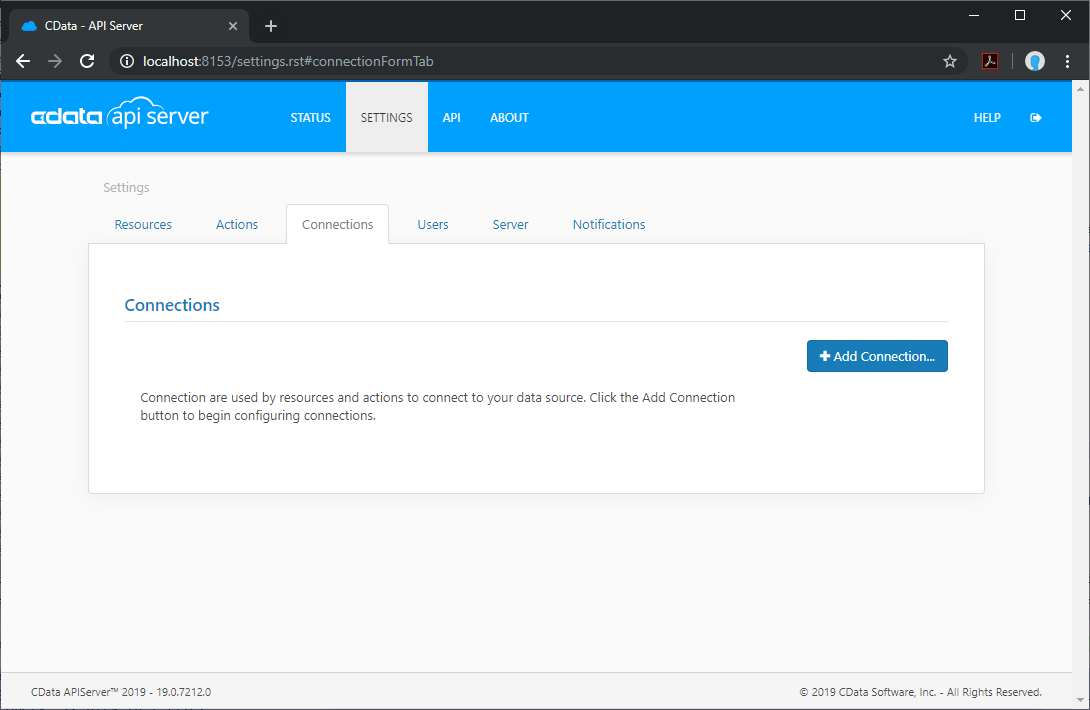
- Select "Dynamics 365"
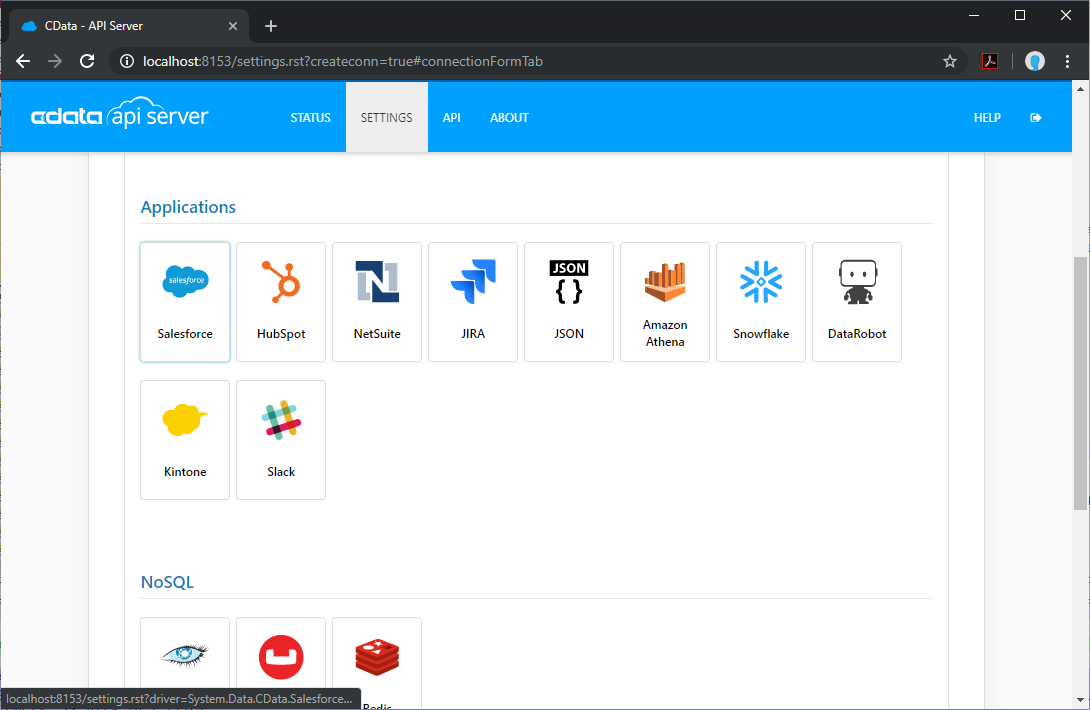
- Enter the necessary authentication properties to connect to Dynamics 365.
Edition and OrganizationUrl are required connection properties. The Dynamics 365 connector supports connecting to the following editions: CustomerService, FieldService, FinOpsOnline, FinOpsOnPremise, HumanResources, Marketing, ProjectOperations and Sales.
For Dynamics 365 Business Central, use the separate Dynamics 365 Business Central driver.
OrganizationUrl is the URL to your Dynamics 365 organization. For instance, https://orgcb42e1d0.crm.dynamics.com
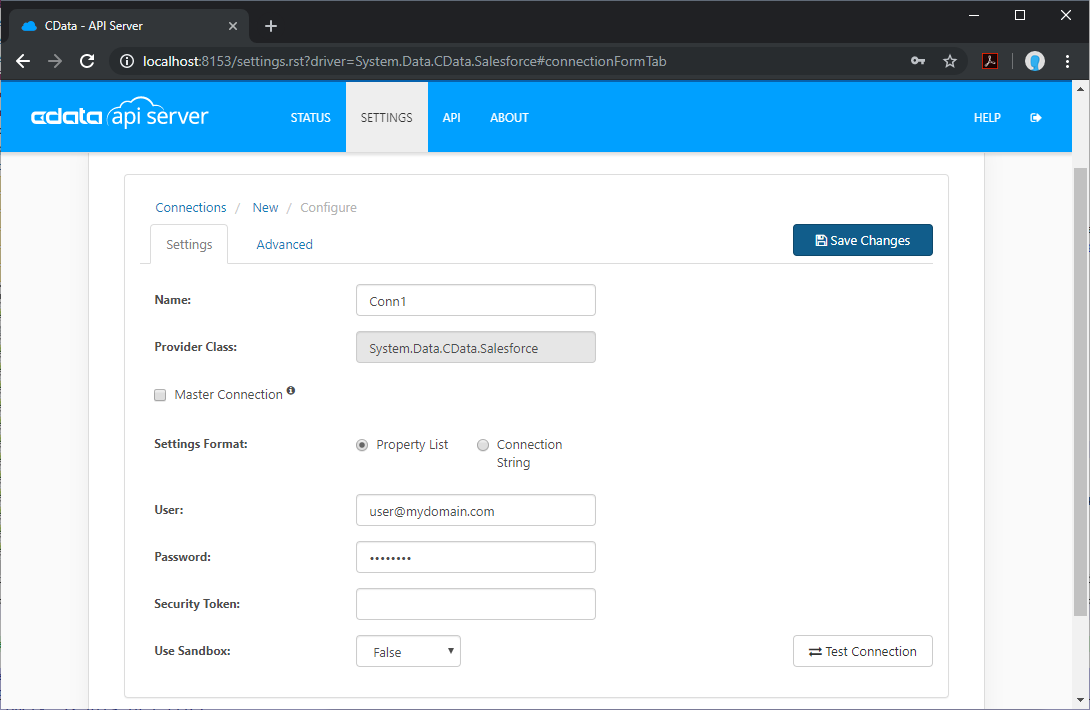
Add Dynamics 365 Resource Definitions in API Server
After connecting to Dynamics 365, create Resources, which represent API endpoints for Dynamics 365 data.
- Click Settings -> Resources -> Add Resource
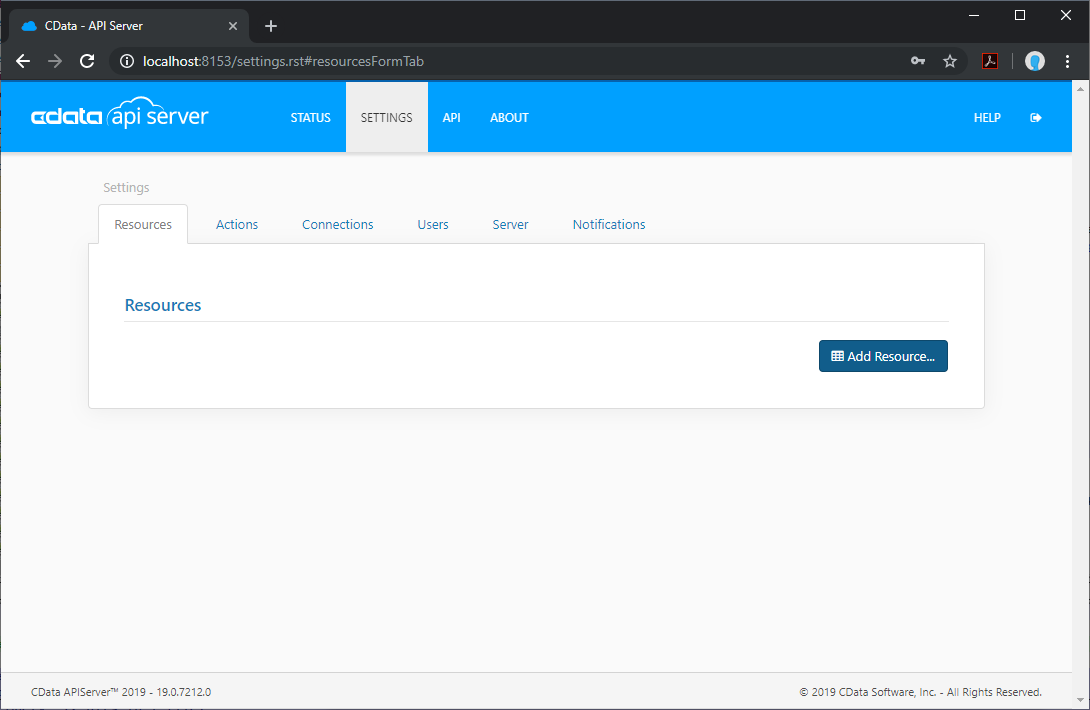
- Select the Dynamics 365 connection
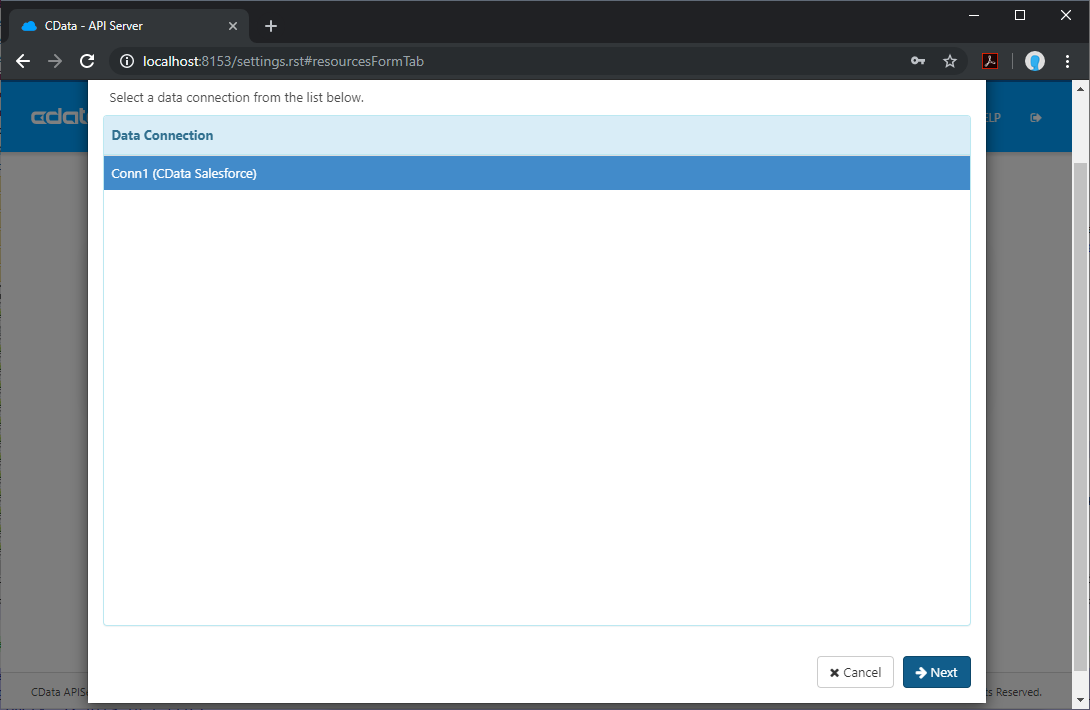
- Select the table you wish to retrieve and click Next
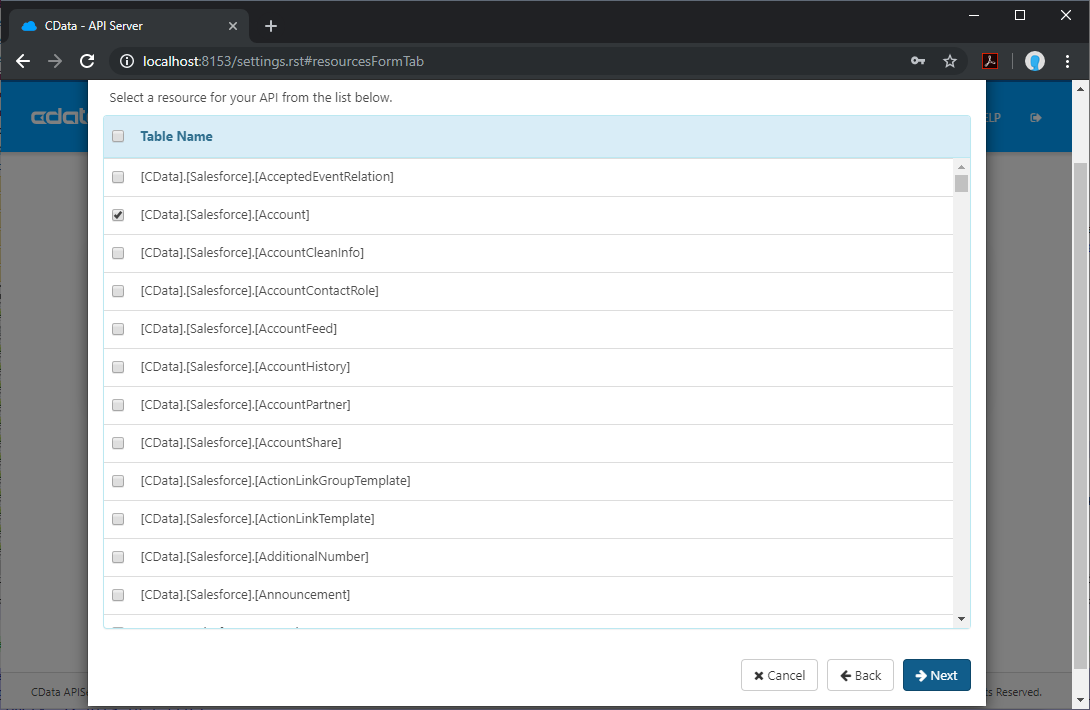
- (Optional) Edit the resource to select specific fields and more
- Save the settings
Add an API Server User
Create a User to connect to Dynamics 365 from Reveal through API Server.
- Click Settings -> Users
- Click Add
- Configure a User with access to the Dynamics 365 Connection and Resource(s)
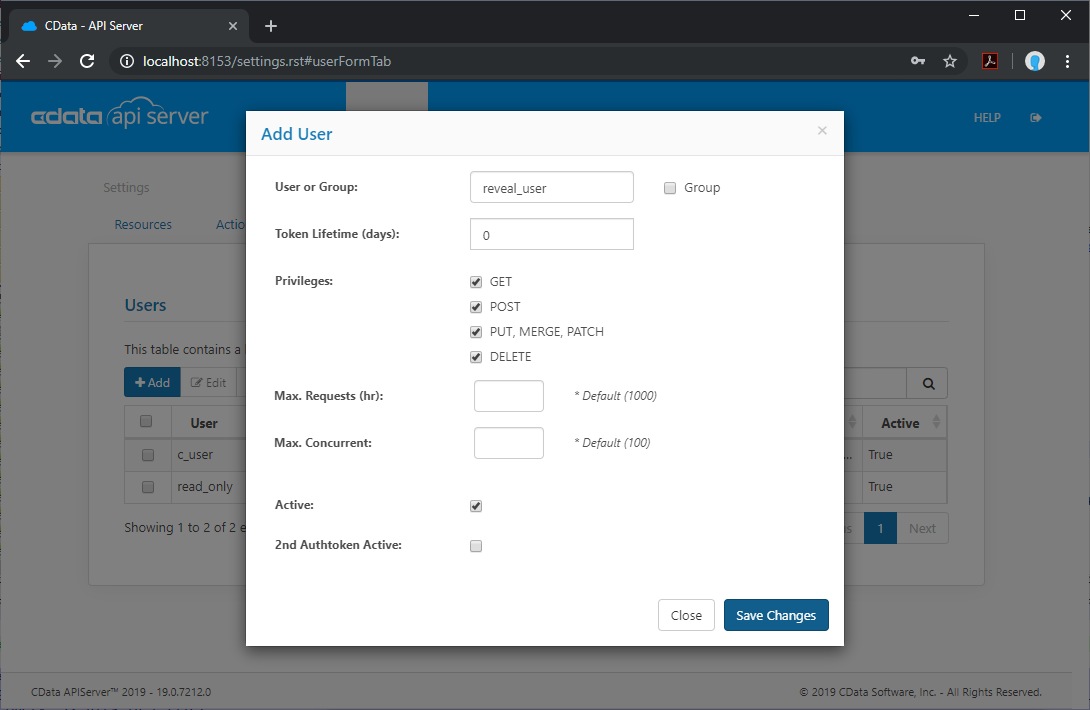
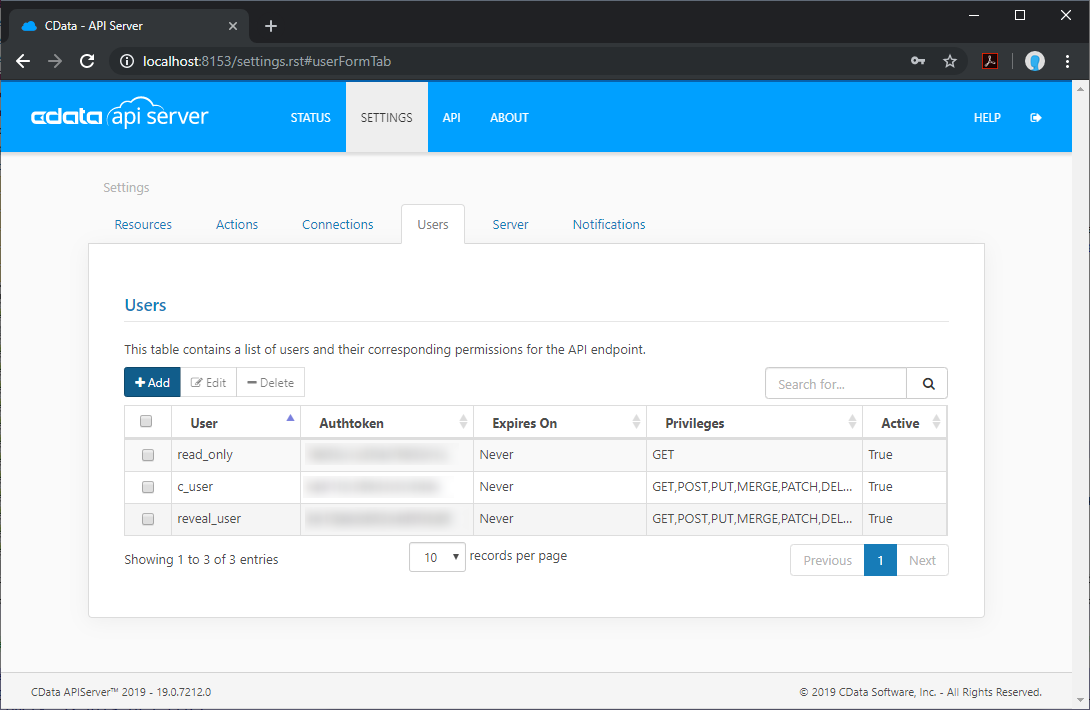
(Optional) Configure Cross-Origin Resource Sharing (CORS)
When accessing and connecting to multiple different domains from an application such as Ajax, there is a possibility of violating the limitations of cross-site scripting. In that case, configure the CORS settings in Settings -> Server.
- Enable cross-origin resource sharing (CORS): ON
- Allow all domains without '*': ON
- Access-Control-Allow-Methods: GET, PUT, POST, OPTIONS
- Access-Control-Allow-Headers: Authorization
Save the changes to the settings.
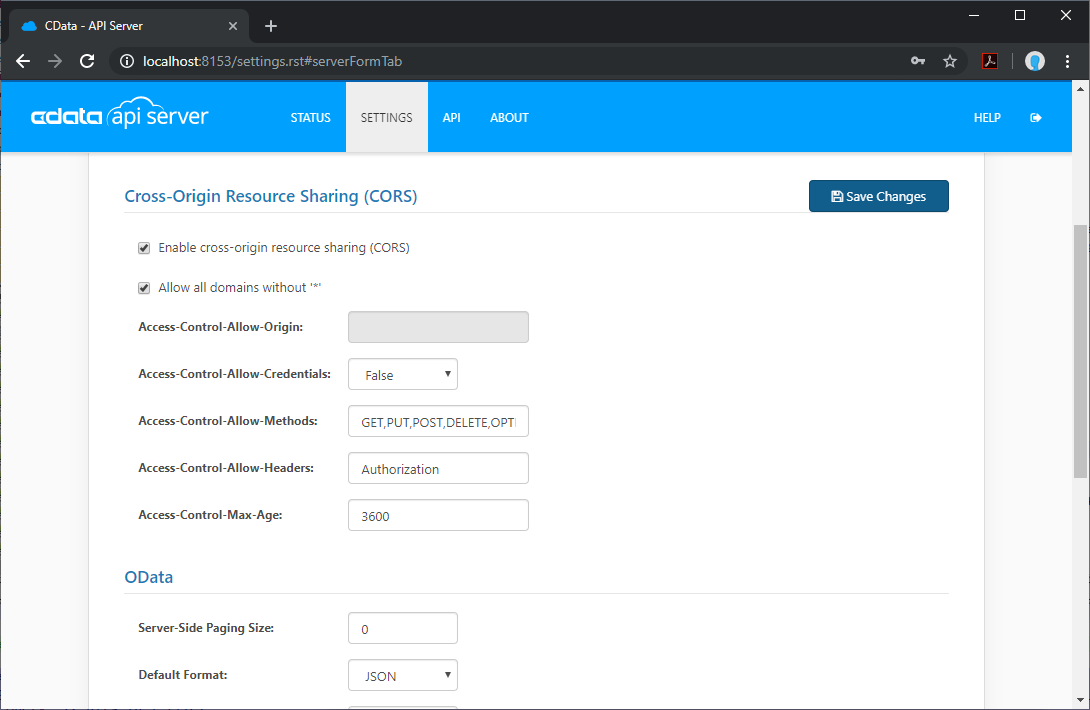
Create a Dashboard in Reveal
With the API Server configured, we can visualize Dynamics 365 data in Reveal.
- Log into Reveal and click Dashboards -> New
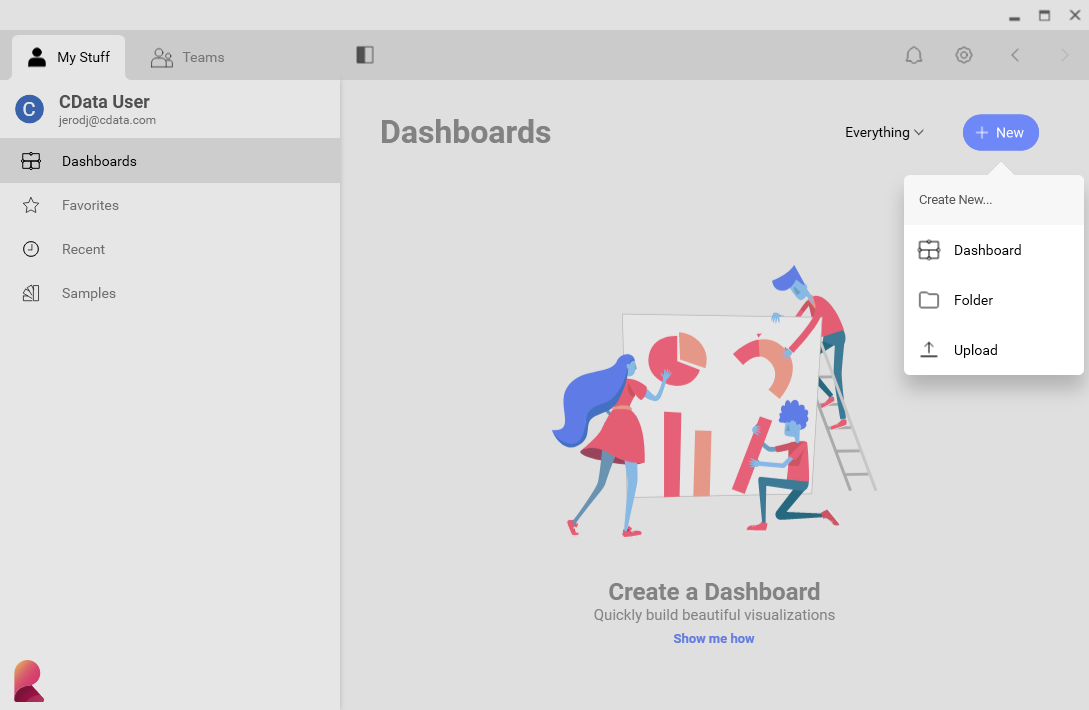
- Click Data Source -> OData Feed

- Specify the API Server API endpoint URL, for example: https://serverurl/api.rsc
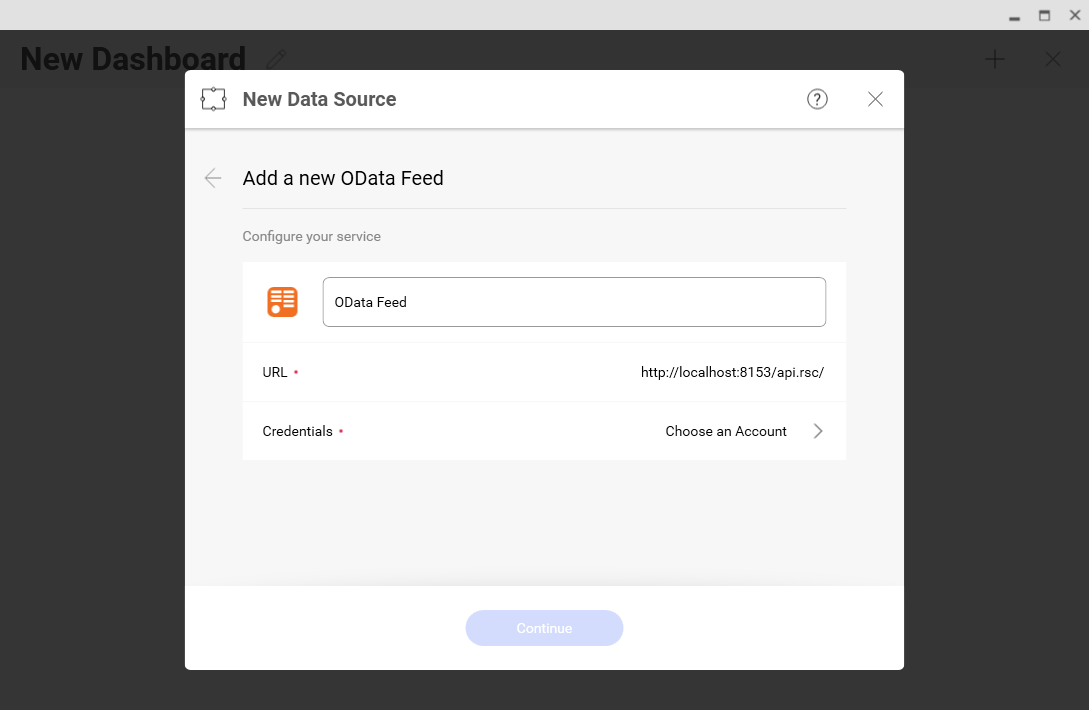
- Select Generic Credentials and specify the API Server username and authentication token
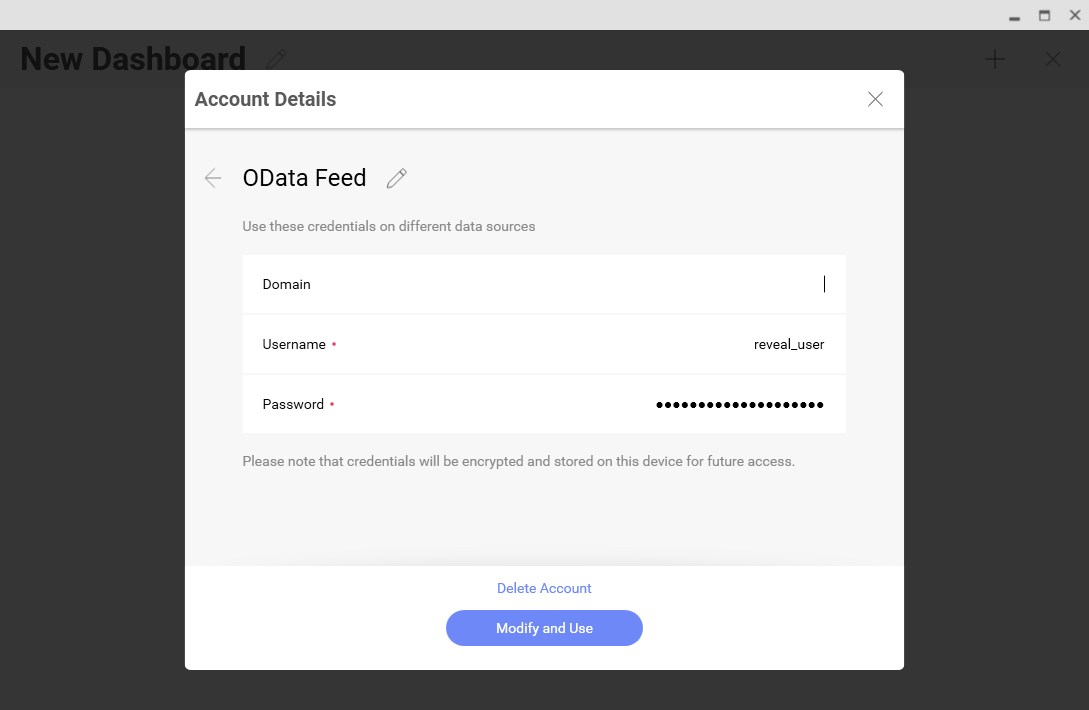
- Select the entity you wish to visualize
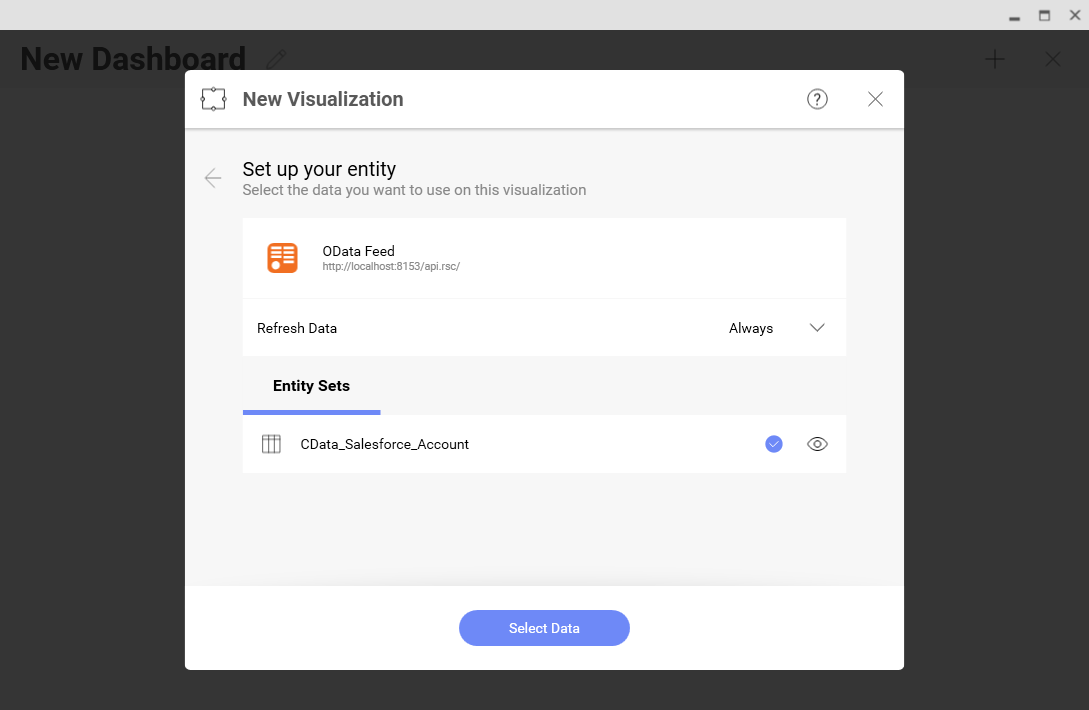
- Select fields and choose a chart type
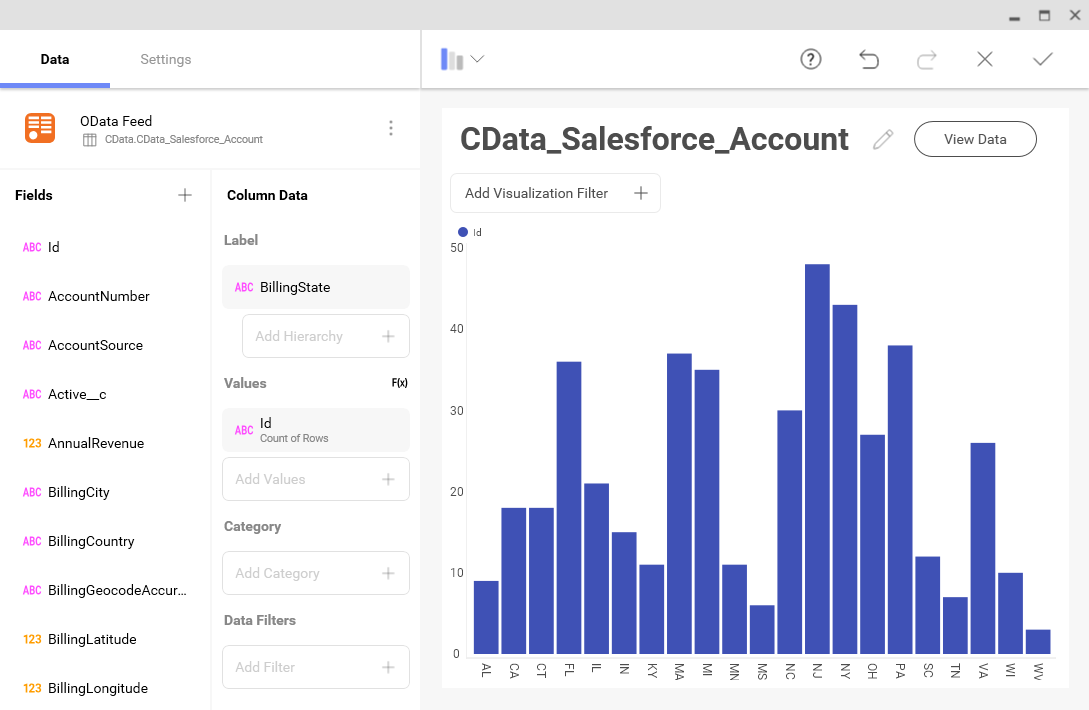
More Information & Free Trial
At this point, you have created a simple dashboard from live Dynamics 365 data. For more information on creating OData feeds from Dynamics 365 (and more than 150 other sources), visit the API Server page. Download a free, 30-day trial and start working live Dynamics 365 data in tools that consume OData APIs.
